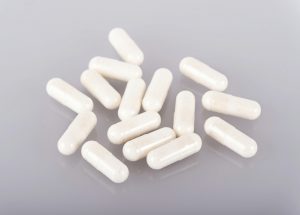 Probiotics that help prevent hepatic encephalopathy may benefit liver cirrhosis patients. Dr. David W. Victor III, a practicing hepatologist, said, “This rigorous new research finds that probiotics modify the gut microbiota to prevent hepatic encephalopathy in patients with cirrhosis of the liver. These results offer a safe, well-tolerated, and perhaps cheaper alternative to current treatments.”
Probiotics that help prevent hepatic encephalopathy may benefit liver cirrhosis patients. Dr. David W. Victor III, a practicing hepatologist, said, “This rigorous new research finds that probiotics modify the gut microbiota to prevent hepatic encephalopathy in patients with cirrhosis of the liver. These results offer a safe, well-tolerated, and perhaps cheaper alternative to current treatments.”
The researchers conducted a single-center, prospective, open-label, randomized trial with cirrhosis patients who showed risk factors for hepatic encephalopathy. The researchers compared probiotic treatment with a placebo and found that incidences of hepatic encephalopathy were reduced among those taking probiotics.
Advertisement
No adverse side effects were seen with probiotics, and none of the patients had to discontinue taking the probiotics. The results revealed that probiotics are just as effective as standard care in the prevention of hepatic encephalopathy and are better tolerated.
Dr. Victor added, “By virtue of its size, study duration, and design, as well as the thorough nature of the baseline and follow-up assessments, this study represents an important contribution to the hepatic encephalopathy literature.”
Probiotics may act as a treatment plan to manage hepatic encephalopathy
In an alternative study, researchers found that probiotics may act as a treatment plan to manage hepatic encephalopathy. The study evaluated the effectiveness of probiotics in 160 patients over a nine-month period and saw significant improvements in reducing patients’ arterial ammonia levels after three months of treatment with probiotics.
Probiotics work to enrich gut flora and decrease ammonia. Twice as many patients taking placebo developed hepatic encephalopathy, compared to patients taking probiotics.
Professor Mauro Bernardi said, “Hepatic encephalopathy is an insidious disease that’s caused by an accumulation of toxins in the blood that are normally removed by the liver. Treatment normally involves the use of antibiotics or laxatives to suppress the production of toxic substances in the intestine, but there is still a great deal of room for improvement so it will be exciting to see the results of further studies to determine if clinicians have a new form of treatment on the cards.”
